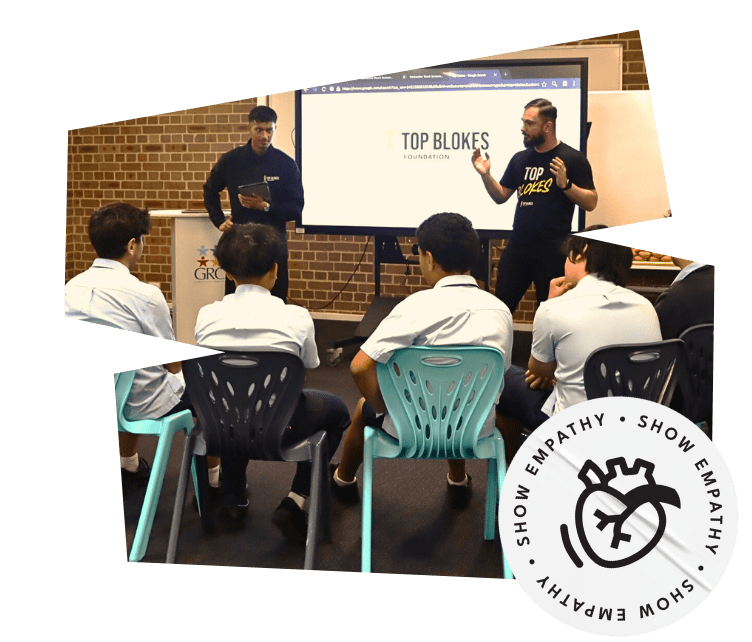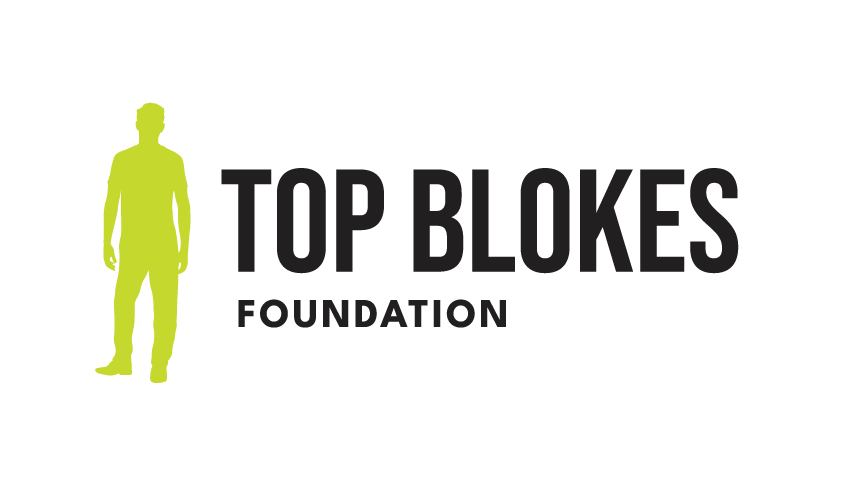Young men in a digital age
The internet has become one of the most powerful influences on young men’s identity and mental health. Masculinity is being shaped by TikTok clips, YouTube rants, and Instagram reels.
For boys, online influencers have become the go-to source for advice on what it means to “be a man.” New research from Movember reveals a growing trend: 63% of young men regularly engage with masculinity influencers online. While some of this content appears to be inspiring and offers structure, it comes at a cost.
Harmful ideas — like emotional suppression, dominance over others, and distrust of women become the norm. It’s not just outdated. It’s dangerous. And it’s growing. Engaging with this content has been linked to increased feelings of worthlessness, psychological distress, and risky behaviour. It builds up anger, resentment and pressure, leaving boys disconnected from themselves and the people around them.
But we can disrupt the scroll. We can show boys that there are many ways to be strong, and none of them involve hate. We can offer mentorship, emotional tools, and real conversations that help them think critically, connect deeply, and rewrite what manhood really means.
Ready to unpack it? Let’s jump in.
Beyond the mask…
Time to pull up a chair and have a yarn. Top Blokes Youth Worker, Thomas chats openly about his world growing up and what it’s like for young men struggling to find themselves. He talks about how we can redefine what being a man means to us today and build the confidence to find our own way.
This isn’t your average locker-room talk. Thomas and barber Nick go deep into vulnerability, strength and everything in between. They explore the importance of knowing who you are, finding connection and living by your values.
The word on being a man…
A man isn’t defined by his physical appearance but by his character and the way he helps others.
Young male
The beauty of the Top Blokes program is most of his mentors had faced some kind of adversity like my child was going through. They showed their vulnerability. His mentors didn’t act like his teachers or parents. They were his peers and showed him its ok to be a man and to be vulnerable.
Parent
Being a man isn’t about being the toughest in the room but it’s about being the person in the room that’s willing to sacrifice things for those who he loves and those that are a part of his community. It’s about service to others.
Young male
LET’S GET REAL
For the First Time
- 63% of young men are regularly engaging with online masculinity influencers.
- Many boys are first exposed to this content during early adolescence, before they’ve had a chance to form their own values or understand healthy masculinity.
- Algorithms feed more extreme content the longer they watch, often without them realising it.
Exposure Impacts
- Repeated exposure to manosphere content reinforces regressive gender roles and emotional suppression.
- Influencers frame dominance, control, and detachment as strengths.
- Boys are taught that asking for help is a weakness, leading to silence even when they’re struggling.
Young Males & the Manosphere
- Influencer content shapes distorted ideas about power, identity, and relationships.
- Some boys become more withdrawn, aggressive, or isolated from peers and family.
- Resentment and victim mentalities are common themes, fuelling distrust and hostility towards women.
- Many begin to see empathy, vulnerability, or respect as signs of weakness, not strength.
Wellbeing
- Boys engaging with this content are more likely to feel worthless, distressed, and alone.
- Risky behaviours increase, including steroid use, extreme dieting, and poor mental health outcomes.
- Some boys begin mimicking what they see, leading to harassment, harmful language, or violence in real life.
REAl Talk: Oscar’s Story
Oscar was 14 when he got pulled into the manosphere.
Quiet and lonely, he was spending more and more time online, scrolling through clips of influencers who promised power, control, and confidence. What started as curiosity turned into a belief that to “be a man,” he had to be emotionless, dominant, and disconnected.
By the time he joined the Top Blokes program, Oscar had built up walls. He was defensive, sceptical, and deeply unsure of himself. But his mentor didn’t shame him. He didn’t shut him down. He listened. And over time, things started to shift. “I used to think being a man meant never showing weakness,” Oscar said. “Now I understand being real is what makes you strong.”
Today, Oscar is re-engaging with life. He’s showing up for his friends, his schoolwork, and most importantly, himself. He still scrolls sometimes, but now he has the tools to question what he sees and choose who he wants to be.
What we advocate for…
Media Literacy
Equip young people with the skills to critically analyse online content and challenge harmful messages before they take root.
Youth-led Solutions
Involve boys in co-designing programs and campaigns that address online harms and promote healthy masculinities.
Early Intervention
Deliver age-appropriate identity and values-based education in schools before harmful narratives become embedded.
Healthy Masculinities
Offer diverse and inclusive models of manhood that embrace emotional expression, respect, and vulnerability, not control.
Safe Mentorship
Invest in trained, relatable mentors who build trust with young men and model positive behaviours and values.
Algorithm Accountability
Push for greater transparency from platforms about how harmful content is recommended to young users and what’s being done to stop it.
School & Community Investment
Support teachers, families, and local youth workers with practical tools to spot red flags, have conversations, and take action early.
Understand the influence. Start the conversation
Let’s be honest—some of the stuff boys are seeing online is wild. Alpha male rules. Red pill rants. Influencers are telling them how to act, feel, date, and think. It’s confusing. It’s loud. And it’s shaping how they see themselves and the world.
And it’s hard for the adults in their lives to keep on top of it all and open up a calm, trusted and meaningful conversation. Download our Decoding the Manosphere to give you the language, context, and confidence to start real conversations with the young men in your life.

Why Top Blokes
Belong. Lasting impact with expert guidance
Lasting impact with expert guidance
Our long-term programs, led by qualified Youth Workers, are designed to create change that lasts, foster leadership and grow boys into adults. We’re with them every step of the way as they navigate life’s challenges and become exemplary community members.
Be. Tailored support from within Australian communities
Tailored support from within Australian communities
We’re deeply embedded in the communities we service, offering tailored, evidence-based programs for boys and young men aged 10-24.
Our approach is local, so we understand and can address community-specific needs so every young male we work with gets the tools he needs to thrive
Become. Empowering healthy masculinities
Empowering healthy masculinities
We focus on fostering positive, healthy masculinities and breaking free from stereotypes.
Our programs are dedicated to empowering young males to find their unique strengths, embrace their true selves, and positively contribute to their communities.

